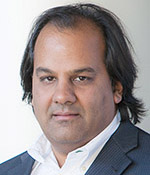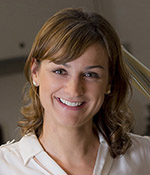
Atul Malhotra, MD
The use of applied physiological methods to optimize treatment will be examined in Monday’s President’s Symposium. Presenters will share how the discipline is paramount in the assessment of respiration mechanics, sleep apnea, the asthmatic airway epithelium, sepsis mechanisms, and regional lung strain, and perfusion.
Although some suggest that applied physiology is dead, Monday’s President’s Symposium will present the case that applied physiology is alive and well. Molecular and cellular biology have made major advances, but the importance of function remains critical.

Tatum S. Simonson, PhD
During “Applied Physiology Is Alive and Well” from 9 to 11 a.m. in Moscone Center, Room 2016/2018 (West Building, Level 2), attendees will gain an understanding of the inflammatory reflex, the concept of driving pressure at the bedside, and the therapeutic importance of loop gain.
World-renowned scientists, clinical investigators, and other thought leaders will review areas in which applied physiology has advanced and helped change the lives of patients.
“We have an exciting lineup,” says ATS President Atul Malhotra, MD, the Ken Moser Professor of Medicine and chief of the Division of Pulmonary and Critical Care Medicine at the University of California, San Diego. “Members should feel lucky that so many high-caliber speakers agreed to participate.” His co-moderator is Tatum S. Simonson, PhD, assistant adjunct professor of medicine and a postdoctoral fellow in the Division of Physiology at the University of California, San Diego.
Presenters will discuss:
- 9 a.m.: “Respiration Mechanics: Saving Lives for Nearly a Century,” Jeffrey Drazen, MD, editor-in-chief of the New England Journal of Medicine, Boston
- 9:10 a.m.: “Applied Physiology in Sleep Apnea and Control of Breathing,” Magdy Younes, MD, PhD, professor of medicine at the University of Manitoba, Winnipeg
- 9:35 a.m.: “Unjamming and Cell Shape in the Asthmatic Airway Epithelium,” Jeffrey Fredberg, PhD, professor of bioengineering and physiology at the Harvard School of Public Health, Boston
- 10 a.m.: “From Sepsis Mechanisms to the Origin of Bioelectronic Medicines,” Kevin Tracey, MD, president and CEO, Feinstein Institute for Medical Research, Manhasset, New York
- 10:25 a.m.: “Assessing Regional Lung Strain and Perfusion at the Bedside: The Future Is Now,” Marcelo Amato MD, PhD, professor at the University of Sí£o Paulo, Brazil
- 10:50 a.m.: Young Investigators Presentations.
